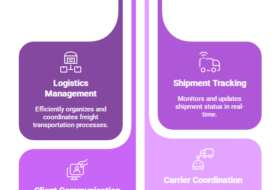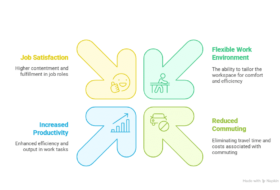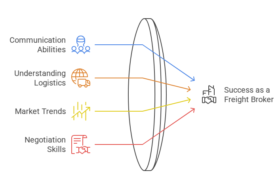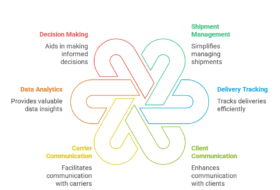freight broker in North Carolina
Freight brokers are regulated at the federal level. The North Carolina Utilities Commission only regulates brokers working with passenger carriers.
To broker goods and products across state lines, you need a license through the Federal Motor Carrier Safety Administration (FMCSA). The first step is to apply for a U.S. Department of Transportation number, which you can do on the FMCSA website.
Next, you need to purchase a surety bond or trust fund agreement. These must be in the amount of $75,000 or more, and you’ll need to show proof when you apply for a license. Complete the BOC-3 form through the FMCSA to designate a process agent, and you’re ready to apply and submit the $300 fee.
These are the minimum requirements to begin working as a freight broker, but you may want to take a couple of additional steps:
- Register your business. Many freight brokers work independently, starting a small business. If you plan to do this, choose a legal framework, such as a Limited Liability Company (LLC), to be more professional. You can do this through the state.
- Earn certification. The Transportation Intermediaries Association offers a Certified Transportation Broker (CTB) credential. As a CTB, you show clients and employers that you have the skills and knowledge to do the job.
Once you’ve completed a program and received your license, you have a couple of options for working as a freight broker. You can start your own business, which means working anywhere you want. Alternatively, you can seek employment with an existing company. Most jobs are available in North Carolina’s largest city, Charlotte.
Growth + Change = Opportunity! How are you going to capitalize on the opportunity as a freight broker, agent, dispatcher or box truck carrier!?
Check out our courses for becoming a Freight Broker, Agent or Freight Dispatcher! As always reach out to us with any questions we are here to help 7 days a week!







